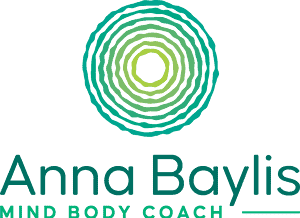Mindfulness 💚
How often do you stop and BE in the moment?
Practicing mindfulness offers many benefits for your mental and physical well-being. It allows you to focus on the present moment, which can reduce stress and anxiety by helping you let go of worries about the future or regrets about the past.
Mindfulness can also improve physical health by reducing blood pressure, lowering the risk of heart disease, and improving sleep. By being more present and attentive in your relationships, mindfulness can also improve your connections with others, leading to better communication, deeper connections, and increased empathy.
Practicing mindfulness can enhance cognitive performance by enhancing attention, memory, and decision-making abilities. Additionally, mindfulness allows you to become more aware of your thoughts, emotions, and behaviors, which can help you better understand yourself and your reactions to different situations. By reducing stress, improving relationships, and enhancing well-being, mindfulness can increase overall happiness and life satisfaction.
While the benefits of mindfulness may vary from person to person, consistent practice can lead to positive changes in your life. Give it a try and see how it can benefit you!
Here are 5 tips to being in the moment.
Practice mindfulness: Mindfulness is a great tool to help you be in the moment. It involves paying attention to your thoughts, feelings, and sensations in a non-judgmental way. You can practice mindfulness by simply focusing on your breath, taking a walk in nature and paying attention to your surroundings, or doing a body scan to check in with your body’s sensations.
Disconnect from technology: Scrolling on social media or watching TV is not the same as being in the moment. In fact, these activities can distract you from being present. Consider taking a break from technology and spend some time doing something that allows you to be present and engaged.
Take a break: Sometimes, we need to give ourselves permission to take a break. It’s okay to take a break from our busy lives and responsibilities. It could be as simple as taking a walk, taking a nap, or sitting quietly in a room. Taking a break can help you reset and recharge, allowing you to be more present when you return to your responsibilities.
Practice gratitude: Practicing gratitude can help you be in the moment by shifting your focus to what you have in the present moment, rather than what you lack or what you want in the future. Consider keeping a gratitude journal, where you write down three things you are grateful for each day.
Connect with others: Sometimes, being in the moment means connecting with others. Spending time with loved ones or engaging in meaningful conversations can help you be present and engaged.
Remember, being in the moment takes practice. It’s okay if it feels uncomfortable or challenging at first. Start small, and gradually build up to longer periods of time. With time and practice, being in the moment can become a natural part of your daily routine.
Here is a mindfulness practice for you to try.





Leave a Reply
Want to join the discussion?Feel free to contribute!